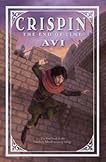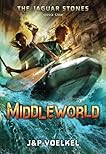Royal Society announces science book prize shortlist
Guardian article on science book prize nominees
The shortlist is a smorgasbord of popular science writing offering a taste of evolutionary biology, statistics, archaeology, olfaction, good science and bad science
Today the Royal Society announced the shortlist for its science book prize. It's a strong field of contenders for the £10,000 prize money. Regular readers of the Guardian and fans of our Science Weekly podcast will already be familiar with the finalists. One of the shortlisted books was recently picked over by our Science Book Club, one of the authors writes a popular weekly column for the Guardian, and two have been guests on the podcast.
Sir Tim Hunt, who chairs the panel of judges, said: "There's clearly a large audience for books that explain science clearly and gracefully, and no shortage of authors. Choosing a final list of six books from the big boxes of books that arrived on our doorsteps – over 120 books were submitted – was a challenging pleasure."
Here's the shortlist:
What the Nose Knows: The Science of Scent in Everyday Life by Avery Gilbert
Olfaction expert Gilbert takes us on a journey through the world of aroma, describing the latest scientific discoveries and exposing popular misconceptions about smell. Apparently the human nose is almost as sensitive as the noses of many animals, including dogs; blind people do not have enhanced powers of smell; and perfumers excel at their jobs not because they have superior noses, but because they have perfected the art of thinking about scents.
Bad Science by Ben Goldacre (Harper Perennial)
Goldacre writes the popular Bad Science column on Saturdays in the Guardian. Like the column, his book is about the shoddy, misleading science we are bombarded with by the media and in advertising. The updated paperback edition includes a damning chapter on Matthias Rath, the vitamin-pill entrepreneur who unsuccessfully sued him for libel.
The Age of Wonder: How the Romantic Generation Discovered the Beauty and Terror of Science by Richard Holmes
Holmes charts the rise of modern science in the late 18th century through the lives of botanist Joseph Banks, astronomer William Herschel, explorer Mungo Park and chemist Humphry Davy, and explores its influence on writers and romantic poets including Mary Shelley, Coleridge, Byron and Keats. Reviewing the book for the Science Book Club in May, Tim Radford wrote: "This is a rich, crowded book, with something luminous, provoking and instructive on every page. The discussions of the challenges of 18th century astronomy, or of the first faltering explorations of chemistry, are as illuminating as any formal scientific history, and twice as readable."
Decoding the Heavens: Solving the Mystery of the World's First Computer by Jo Marchant
Marchant tells for the first time the story of the 100-year quest to understand an ancient mechanism discovered at the bottom of the Mediterranean among the wreckage of an Ancient Greek shipwreck. What appeared to be a formless lump of rock turned out to be the most stunning scientific artefact to survive from antiquity. Marchant came into the studio in October to talk about the Antikythera mechanism for our Science Weekly podcast.
The Drunkard's Walk: How Randomness Rules Our Lives by Leonard Mlodinow
Mlodinow uncovers the psychological illusions that prevent us understanding stockmarkets, lotteries, road safety ... and wine-tasting. According to the book jacket, he also "reveals the truth about the success of sporting heroes and film stars, and even how to make sense of a blood test".
Your Inner Fish: A Journey into the 3.5-Billion-Year History of the Human Body by Neil Shubin
An expert in evolutionary history, Shubin "shows that if we want to know why we hiccup, the answer is in the way fish breathe; and explains why it is that fish teeth are surprisingly similar to human breasts."































No comments:
Post a Comment